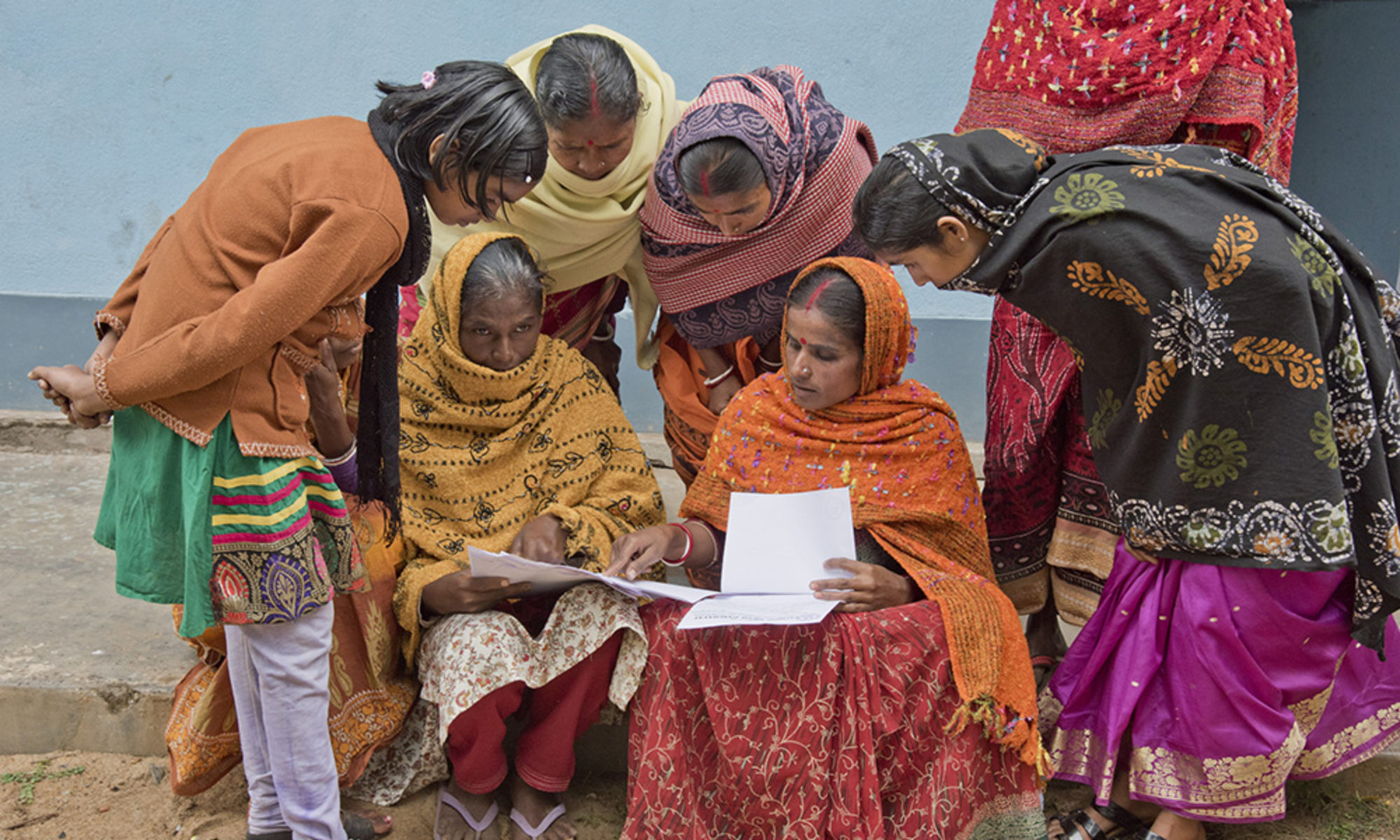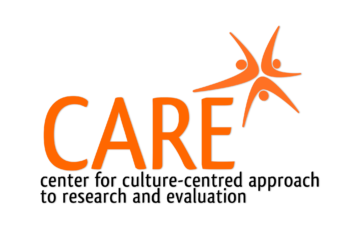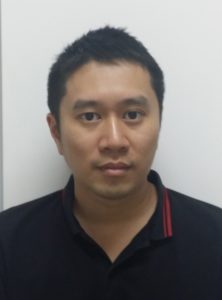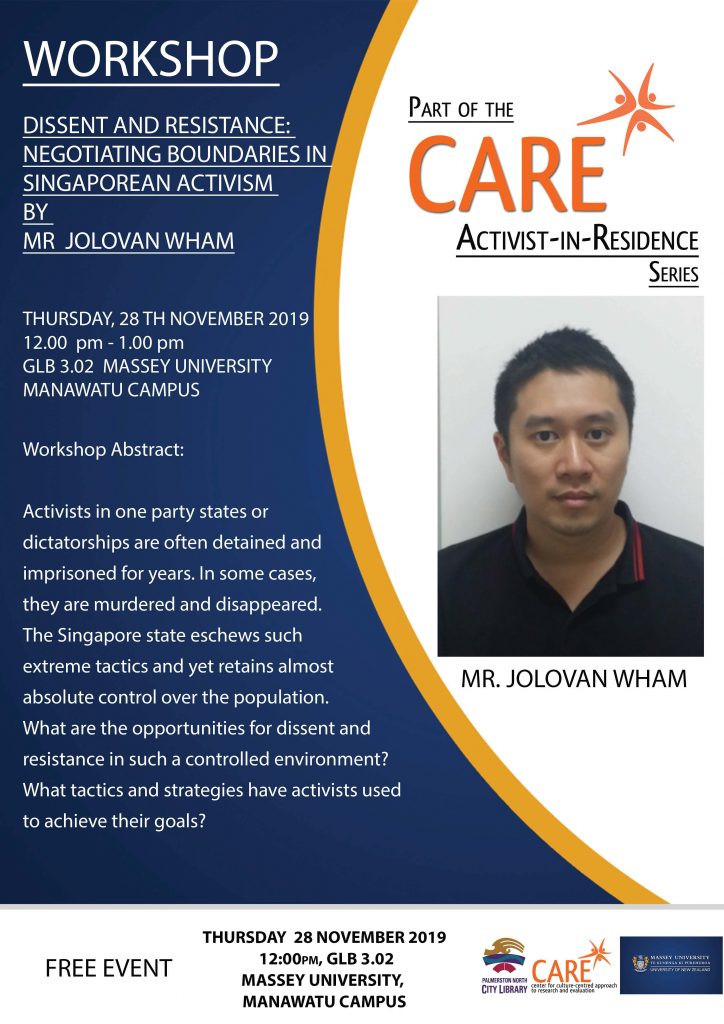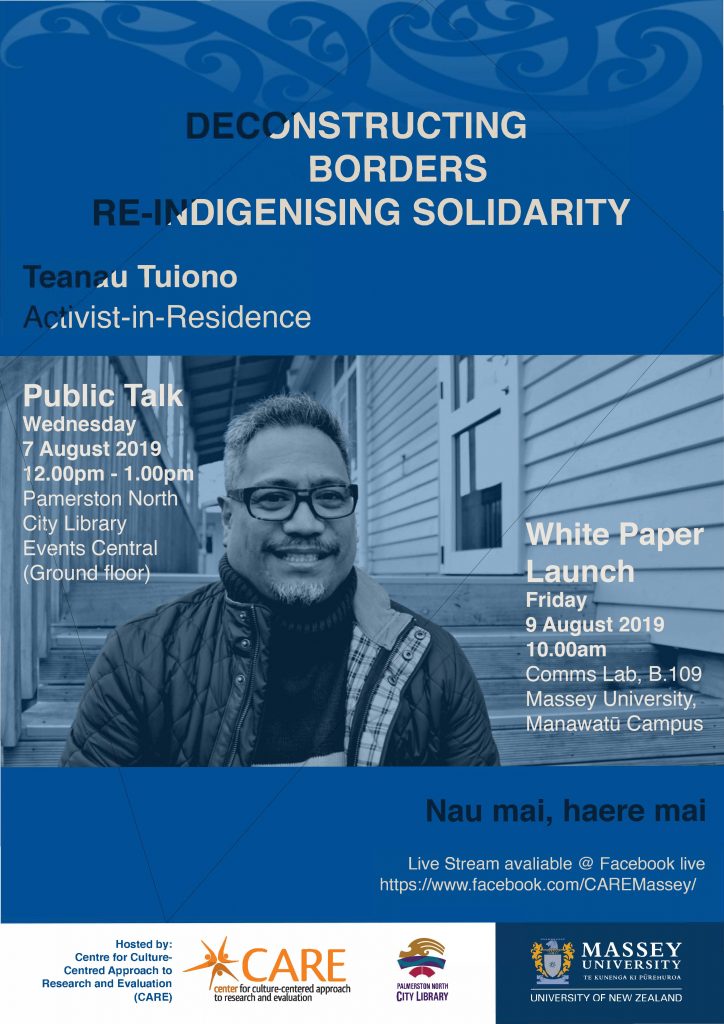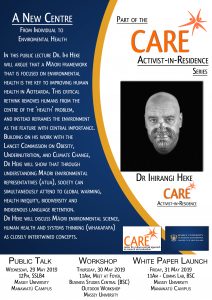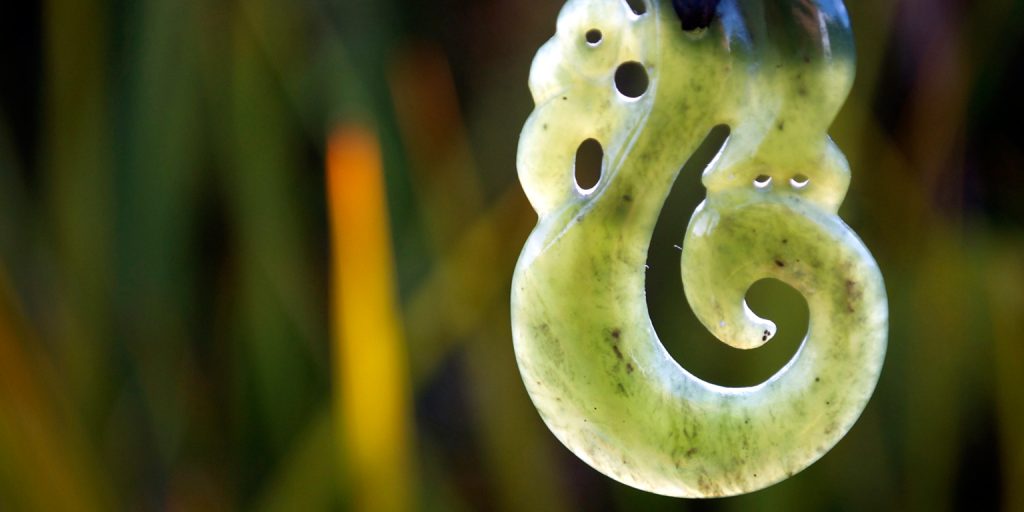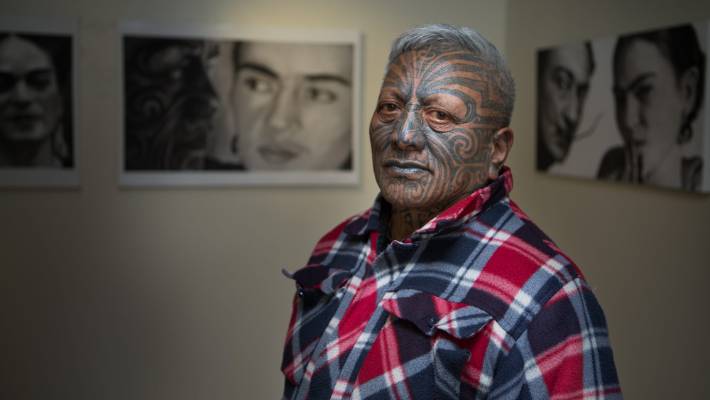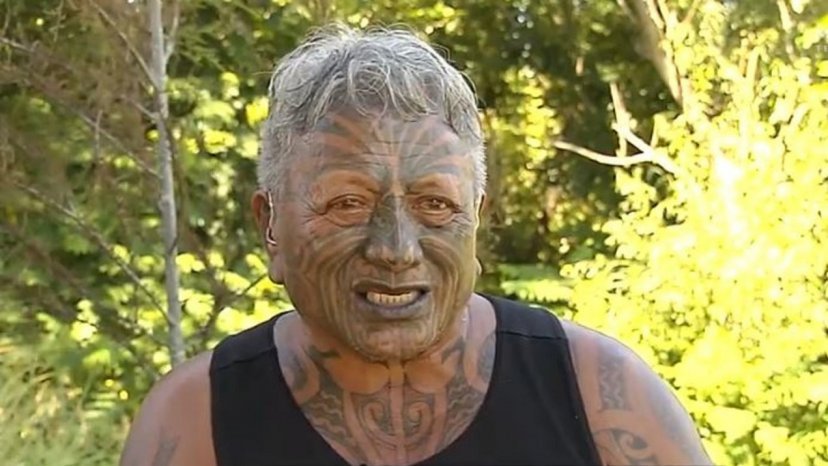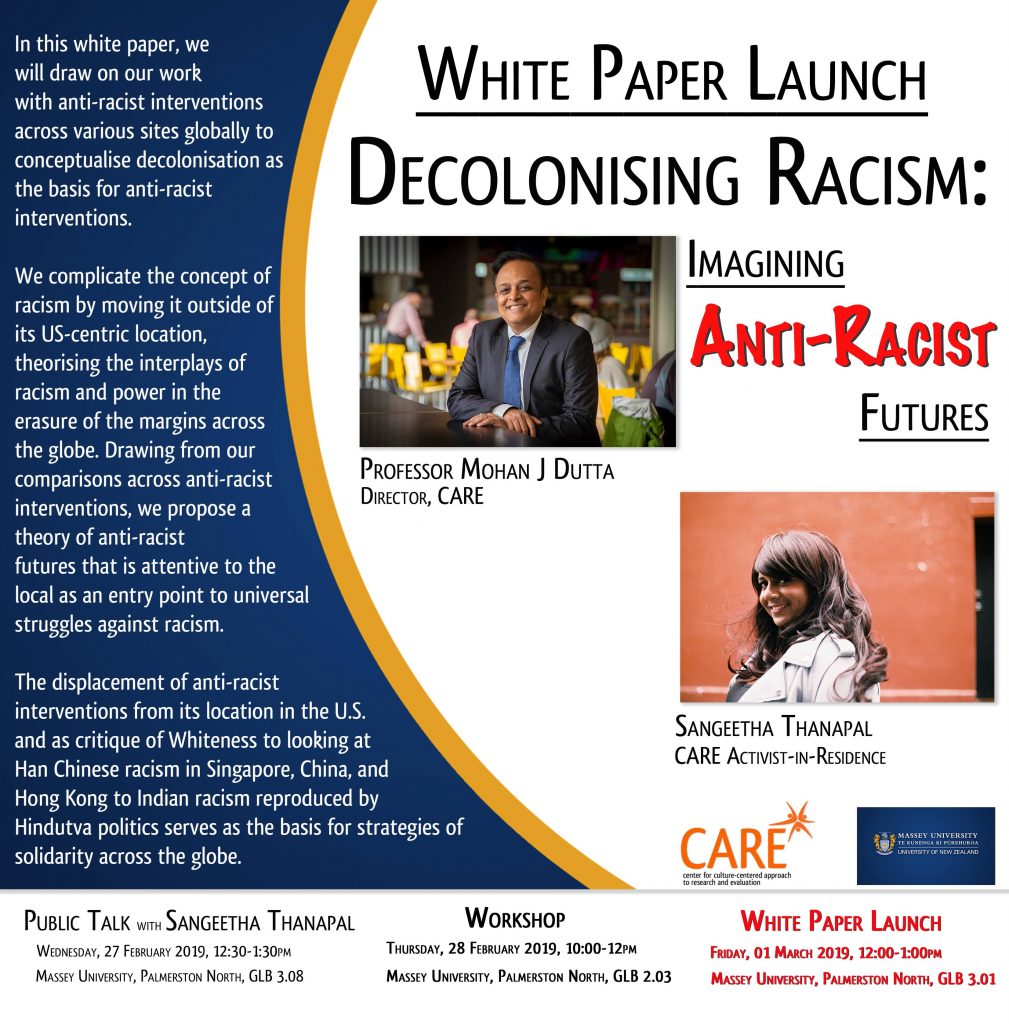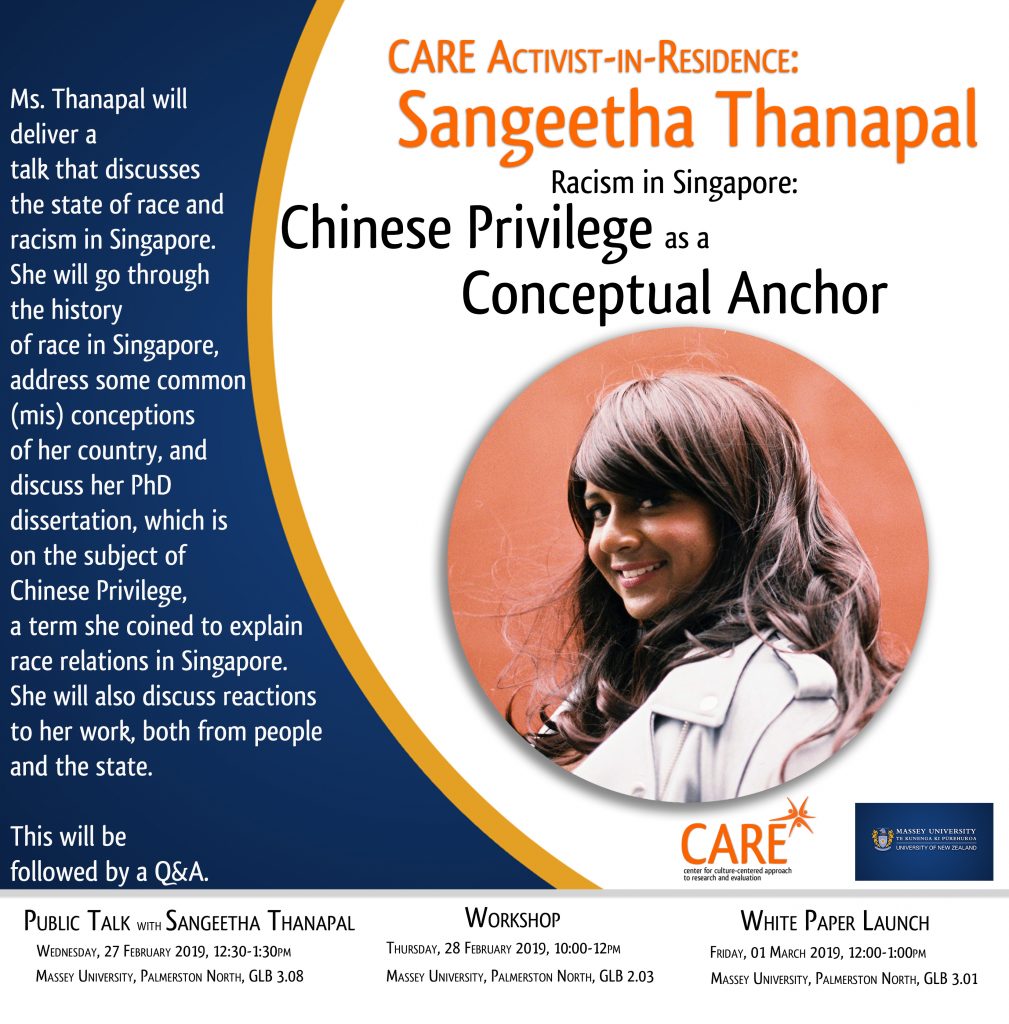Center for Culture-Centered Approach to Research and Evaluation (CARE) is proud to share and invite our next Activist in Residence – Mr. Jolovan Wham.
Jolovan Wham is a Singaporean of ethnic Chinese descent. He has been involved in human rights activism, working primarily on issues relating to migrants, the death penalty, and freedom of expression.
He was executive director of Humanitarian Organisation for Migration Economics (HOME), an NGO which provides shelter, education opportunities and legal aid for low waged migrant workers.
He is a member of the Community Action Network, a coalition of activists which promotes civil and political rights. He obtained his bachelor’s degree in social work from the National University of Singapore. His activism has resulted in him being banned by the education minister from speaking at education institutions and campuses.
He will be presenting a Public Talk, Workshop & will be collaborating with Prof. Mohan Dutta,Director,- CARE at Massey University on the topic “Communicative strategies for resisting authoritarianism”.
The event details are as below.
Center for Culture-Centered Approach to Research and Evaluation (CARE) presents our next Activist In Residence Public Talk by Mr. Jolovan Wham
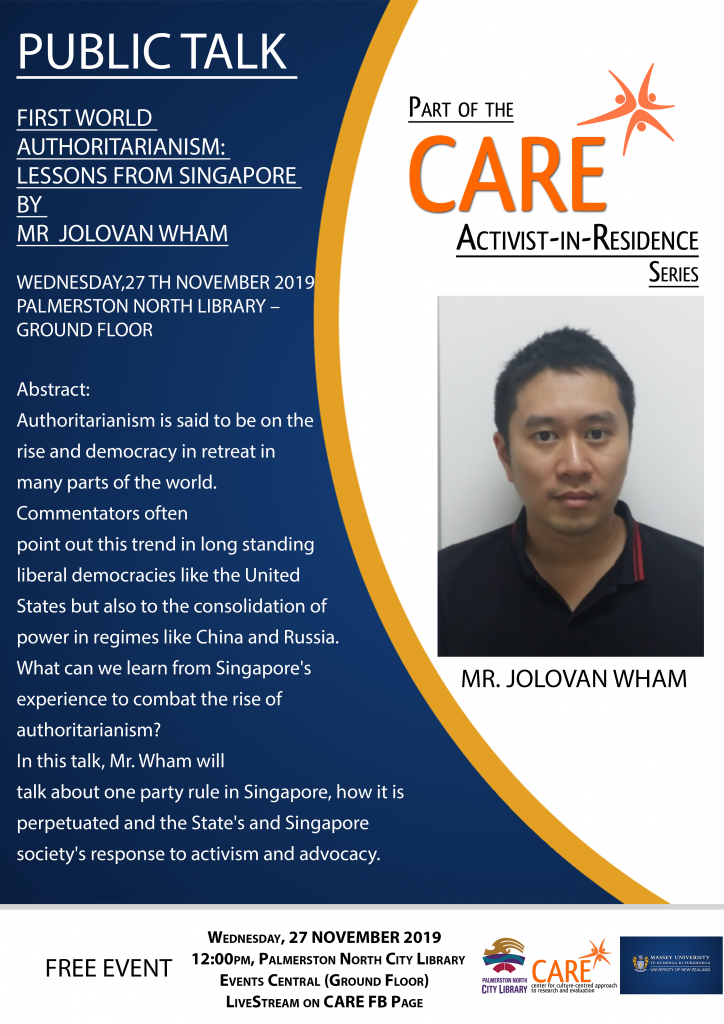
Title: First world authoritarianism: Lessons from Singapore
Date & Time: Wednesday, 27th November @ 12:00 – 1:00 pm
Venue: Palmerston North City Library, Events Centre, Ground Floor, Palmerston North.
Public Talk Abstract:
Authoritarianism is said to be on the rise and democracy in retreat in many parts of the world. Commentators often point out this trend in long standing liberal democracies like the United States but also to the consolidation of power in regimes like China and Russia. What can we learn from Singapore’s experience to combat the rise of authoritarianism? In this talk, Mr Wham will talk about one party rule in Singapore, how it is perpetuated and the State’s and Singapore society’s response to activism and advocacy.
Other events:
CARE Workshop – Dissent and resistance: Negotiating boundaries in Singaporean activism by Mr. Jolovan Wham –
Workshop Title:
CARE Workshop – Dissent and resistance: Negotiating boundaries in Singaporean activism by Mr. Jolovan Wham
Date & Time: Thursday, 28th November @ 12:00-1:00 pm
Venue: GLB3.02 Manawatu, Massey University
Topic: A free workshop on Dissent and resistance: Negotiating boundaries in Singaporean activism by Mr. Jolovan Wham.
Workshop Abstract:
Activists in one party states or dictatorships are often detained and imprisoned for years. In some cases, they are murdered and disappeared. The Singapore state eschews such extreme tactics and yet retains almost absolute control over the population. What are the opportunities for dissent and resistance in such a controlled environment? What tactics and strategies have activists used to achieve their goals?
Center for Culture-Centered Approach to Research and Evaluation (CARE) Activist In Residence White Paper Launch- Communicative strategies for resisting authoritarianism by Jolovan Wham & Mohan Dutta
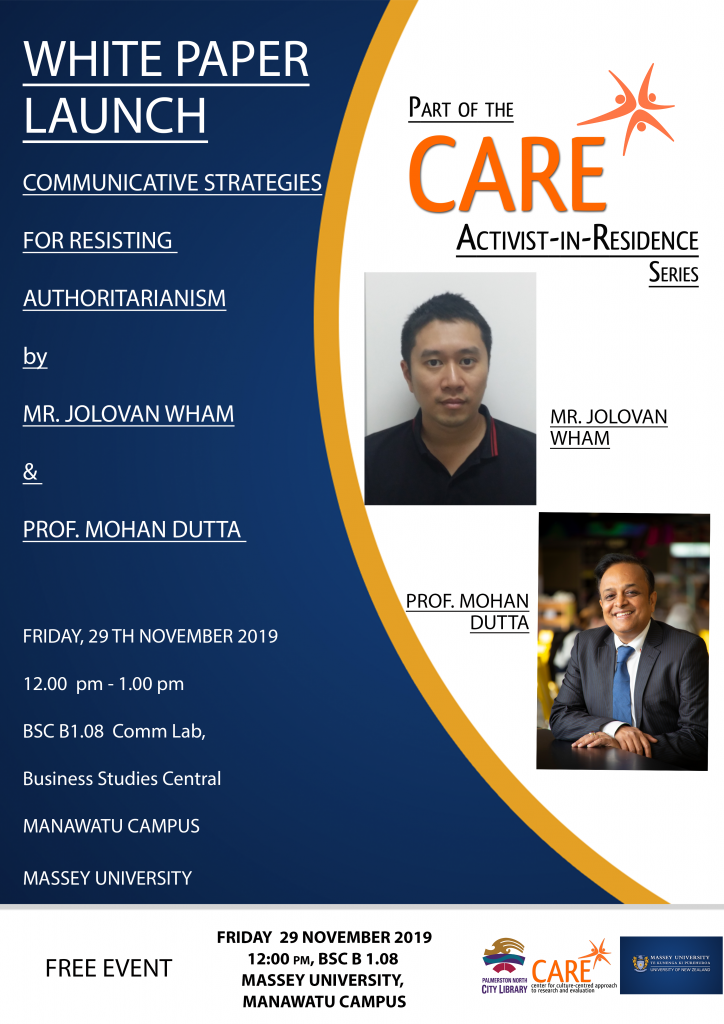 White Paper Title : Communicative strategies for resisting authoritarianism
White Paper Title : Communicative strategies for resisting authoritarianism
Date: Friday 29th November 2019 @ 12 pm – 1 pm
Venue: Business Studies Central BSC 1.08, Manawatu campus Massey University
Livestream on FB: @CAREMassey
Come and hear our speakers launch the CARE White Paper & hear them talk abouttheir white paper on
“Communicative strategies for resisting authoritarianism”
Speaker’s Bio:
Jolovan Wham: is a Singaporean of ethnic Chinese descent. He has been involved in human rights activism, working primarily on issues relating to migrants, the death penalty, and freedom of expression. He was executive director of Humanitarian Organisation for Migration Economics (HOME), an NGO which provides shelter, education opportunities and legal aid for low waged migrant workers. He is a member of the Community Action Network, a coalition of activists which promotes civil and political rights. He obtained his bachelor’s degree in social work from the National University of Singapore. His activism has resulted in him being banned by the education minister from speaking at education institutions and campuses.
Mohan J Dutta: is Dean’s Chair Professor of Communication. He is the Director of the Center for Culture-Centered Approach to Research and Evaluation (CARE), developing culturally-centered, community-based projects of social change, advocacy, and activism that articulate health as a human right. Mohan Dutta’s research examines the role of advocacy and activism in challenging marginalizing structures, the relationship between poverty and health, political economy of global health policies, the mobilization of cultural tropes for the justification of neo-colonial health development projects, and the ways in which participatory culture-centered processes and strategies of radical democracy serve as axes of global social change.
